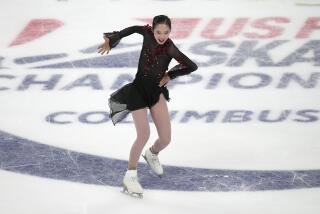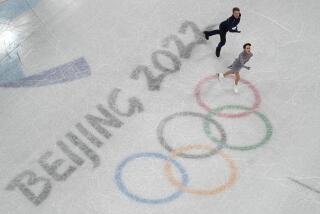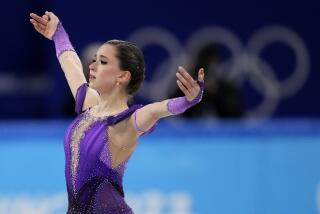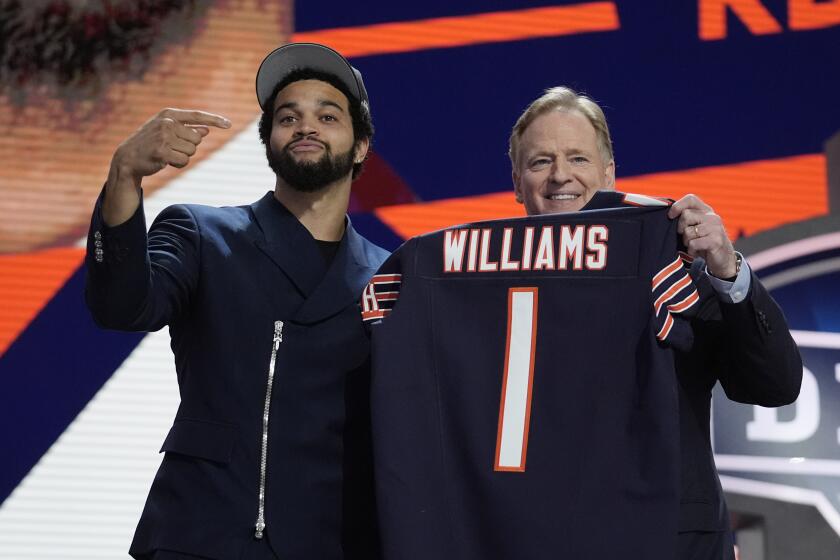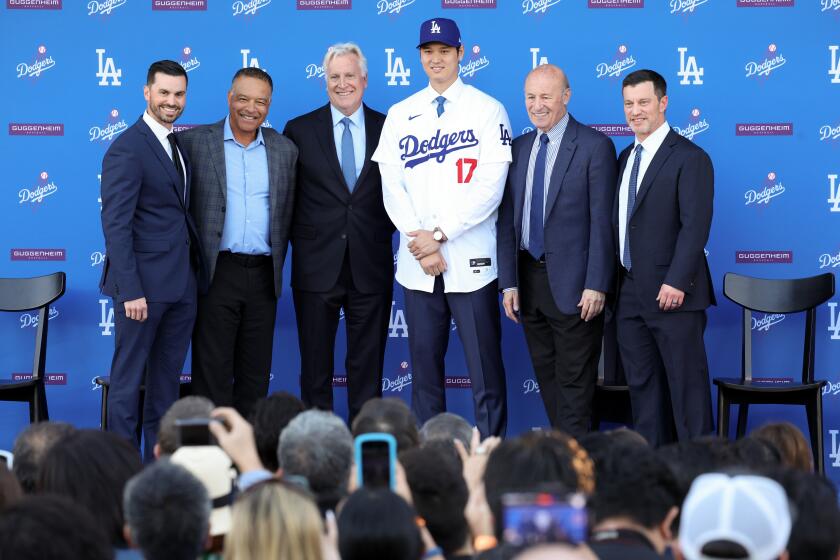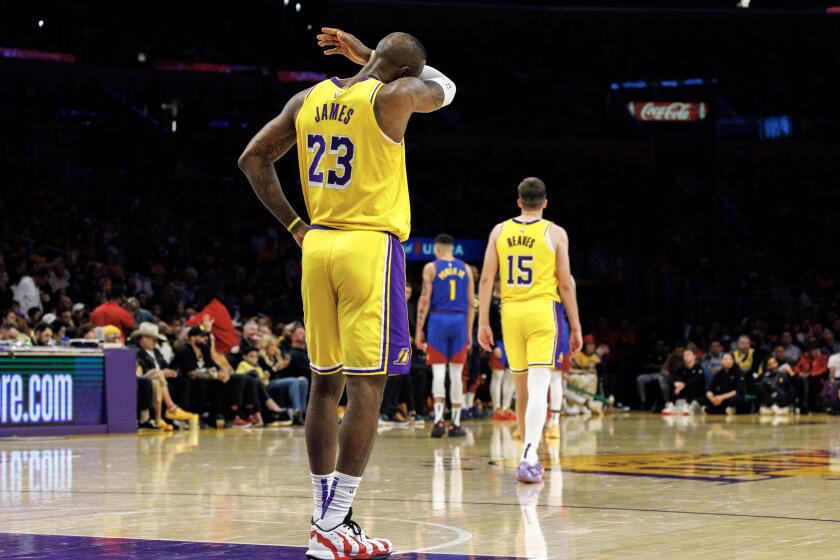Ashley Wagner ignores her age and focuses on figure skating gold at 2018 Olympics
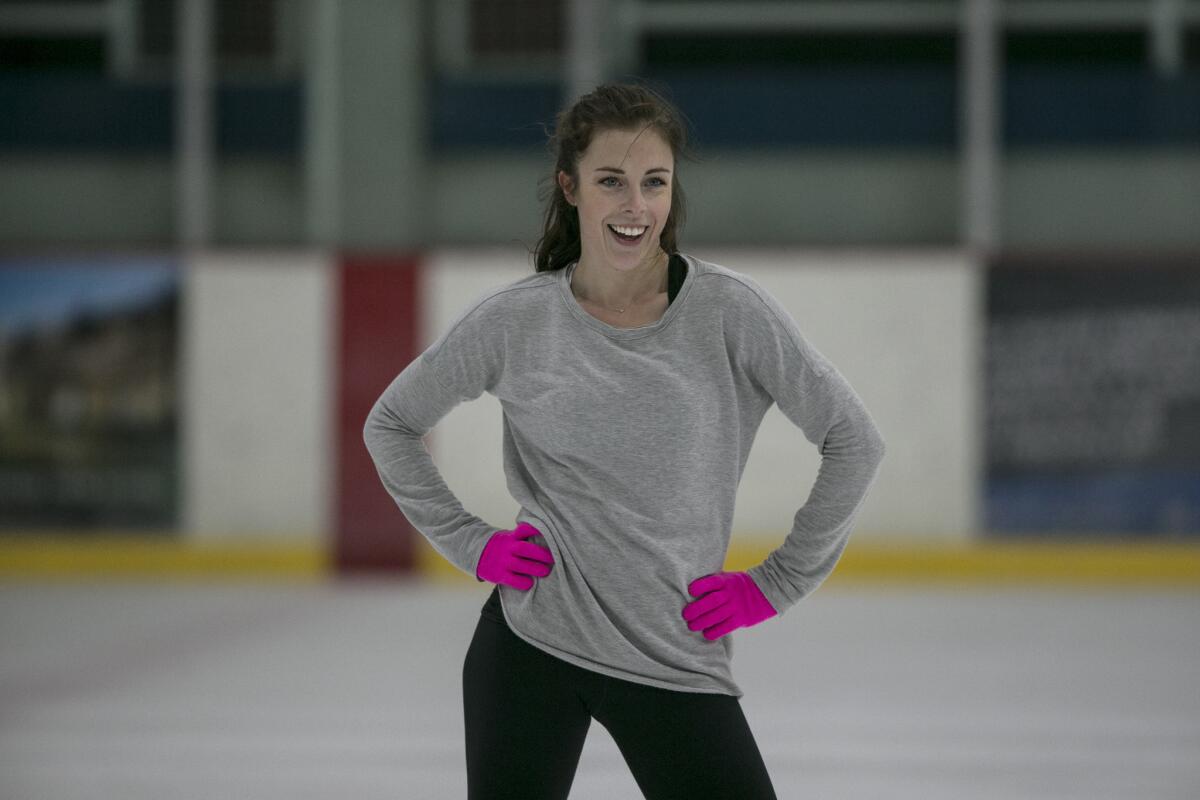
U.S. figure skater Ashley Wagner is a favorite going into the next Winter Olympics.
Ashley Wagner was 24 when she won a silver medal at the figure skating world championships this year and ended a decade-long medal shutout for American women, an advanced age in a sport that too often values youth and acrobatic jumping over assured artistry.
Wagner shared the medal stand with winner Evgenia Medvedeva, 16, and Anna Pogorilaya, 18, both of Russia. Wagner didn’t fit in their age bracket but she fit perfectly with their stellar performances as she moved up from fourth place after the short program to a sparkling second.
Achieving the best result of her career at an age when many elite skaters have retired has reinforced Wagner’s belief that she is someone to reckon with in the competition for gold at the 2018 Olympics in Pyeongchang, South Korea. Her journey will take another significant step this week at Skate America, the first event in figure skating’s Grand Prix series, at Sears Centre[ Arena in the Chicago suburb of Hoffman Estates.
Continued success would confirm that Wagner’s silver medal at the world championships wasn’t a fluke. If it also nudges the sport away from a fascination with limber but unpolished teenagers, that would be fine too.
This is a very tough sport to be older than 17...it’s a youth-obsessed culture within skating.
— Ashley Wagner
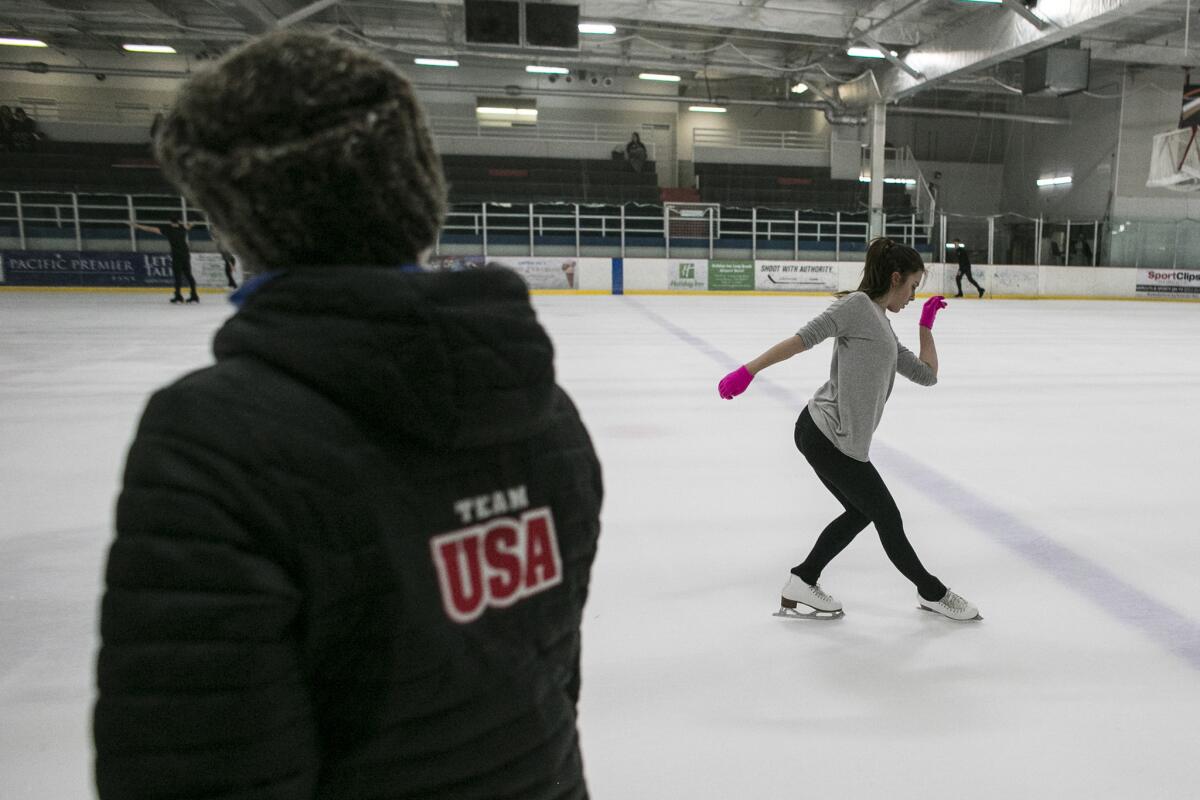
U.S. Olympic figure skater Ashley Wagner consults with Nadia Kanaeva during a practice session at the Rinks in Lakewood on Oct. 6.
“I think that this is a very tough sport to be older than 17, in all honesty,” Wagner, a three-time U.S. champion, said after a recent practice at her training base at Lakewood Ice. “I think it’s a youth-obsessed culture within skating and it’s because we have kind of let it become that. And I don’t think that there is enough importance placed on maturity on the ice.
“I think that for me, that world silver medal definitely turned the tables and got the ball rolling. I think it helps show the importance of a true performance and a woman on the ice and having maturity and skating skills and life experience.”
In addition to winning U.S. titles in 2012, 2013 and 2015, Wagner won a bronze medal in the first Olympic team skating event at Sochi, Russia, in 2014. But she finished seventh in the singles competition, three places behind rival Gracie Gold, a two-time U.S. champion who trains in El Segundo. Wagner’s prospects of being in the medal picture in 2018 appeared dim after that, but she believed she was capable of much more — and proved it this year.
“I think the medal at worlds, if anything, was validation to everybody else,” she said. “I know what I’m capable of. I know how far I have to go and improve before I’m the athlete I want to be for the coming Olympics. But I think that everybody else needed a reminder that I was a medal contender and that I am a medal contender.”
Her coach, Rafael Arutyunyan, understands why observers might have questioned Wagner’s Olympic prospects, but those opinions didn’t deter her.
“In my view, it is not crucial whether others had doubts or not,” said Arutyunyan, who previously coached two-time Olympic medalist Michelle Kwan, 2006 silver medalist Sasha Cohen and other elite skaters. “What matters is that neither Ashley nor me had any doubts, which ultimately led us to success and ended this 10-year medal drought.”
In skating terms the Pyeongchang Games aren’t that far away, so Wagner is putting in long days of multiple practices followed by Pilates or yoga. Her boyfriend, Chicago White Sox prospect Eddy Alvarez, visits when he can. “I go to the gym a lot,” she said. “Running has started to hurt my knees because I’m an old gal now.”
The trick is to get better, not merely older. Competing at Skate America against Gold “definitely made me have to kick it into high gear sooner rather than later,” Wagner said. “I’ve had to up the ante because of her and I think that it’s a very good thing for skating in general because people love a good rivalry. They love to take sides and for skating right now, that’s something that we need.”
If Wagner makes the 2018 U.S. Olympic team she will be 26 at Pyeongchang; the oldest women’s Olympic figure skating gold medalist was 1908 champion Madge Syers of Great Britain, who was 27. The last two champions were 17-year-old Adelina Sotnikova of Russia in 2014 and 19-year-old Yuna Kim at Vancouver in 2010. “Every age has its advantages,” Arutyunyan said, “and one should know how to use them.”
Wagner’s maturity is an advantage but her longevity has come at a cost. A few years ago, when her friends were enjoying college, she struggled to accept the stranglehold figure skating has put on her life. Those friends are getting married now and becoming parents, experiences she has had to delay, but she’s sure of the path she’s taking.
“The way I see it, I’m essentially 20 years into my own career and that is a choice that I made early on,” she said. “I am absolutely obsessed with this sport. I love the way that it makes me feel, I love the way an audience stands up after a performance because of something that you did. Those feelings are so special to me that they make up for the everyday experiences that I definitely miss out on. Never for a second have I ever regretted choosing skating over a normal life.”
Twitter: @helenenothelen
More to Read
Get our high school sports newsletter
Prep Rally is devoted to the SoCal high school sports experience, bringing you scores, stories and a behind-the-scenes look at what makes prep sports so popular.
You may occasionally receive promotional content from the Los Angeles Times.
